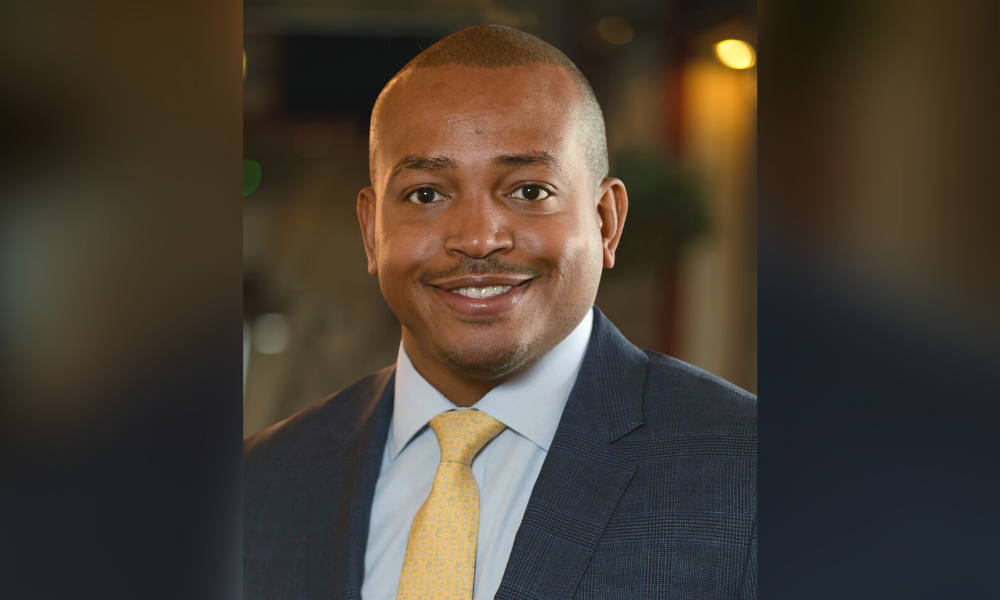He had an early fascination with the financial sector

When Lamar Myers (pictured) was a child growing up in Queens, his parents used to take him out to Manhattan on regular day trips. What he remembers the most, was the imposing skyscraper skyline, especially the Twin Towers.
“You’d get on the train, kind of you walk up, sit back and marvel at them. And you’d see people walking in and out, but as a child, I was like - what are they doing?” he said.
His curiosity was piqued. From then on, little by little, his fascination with the financial sector grew. While in college, he was convinced that one day he would become a trader, but life took a significant turn when he obtained an internship at a private equity firm.
“I sat back and looked at deals and REITs and decided that this was what I wanted to do. And I never looked back. Since graduating, this is what I’ve done,” he said.
Read more: Commercial real estate expert joins Toorak Capital Partners
Two weeks ago, Myers was appointed as principal and head of multifamily business development by Toorak Capital Partners, an investment company specializing in bridge lending. “I’ve kind of hit the ground running,” he told MPA.
The firm was attracted by Myers’ knowledge of the commercial real estate sector, having spent 15 years with some of the biggest players in the multifamily space.
The attraction was mutual, though, as Myers explained.
“There’s two reasons why I came to Toorak. One is that there’s a lot of room for us to grow outside those Freddie and Fannie multifamily deals that just aren’t compliant, and not everybody is going to have the ability to purchase a home or want to own one,” he said.
“The other is the people and the opportunity to work with John (Beacham -Toorak’s CEO) and Ketan (Parekh - the firm’s head of lender relations and capital markets). John has built a kind of better mousetrap. There are sections of the market where you don’t have the right amount of capital providers and John’s figured out how to come in and address those issues.”
It was Myers’ experience working in affordable home projects for New York City that caught Beacham’s eye, as the New Jersey-based company was looking to expand its multifamily lending platform and incorporate affordable and social initiatives into its portfolio.
It’s a gap Toorak believes it can exploit and thrive in because, as Myers pointed out, “agency lenders aren’t going out there investing dollars in large rehabs”.
As a former production manager with Freddie Mac and VP for lending at Citigroup, among others, Myers went on to advise on multifamily debt transactions, totaling hundreds of millions of dollars. He also securitized billions more in commercial real estate in addition to overseeing renegotiation terms on loan defaults, such as the bankruptcy of Lehman Brothers in 2008.
The collapse of the then fourth largest bank in the US, which triggered the worst financial crash in living memory, was an enlightening experience, as it helped to underpin his core belief that the mortgage business is “a relationship business”.
He said: “It was a great experience. I worked with some people that were really good at delivering bad news! But when you go into a company where there’s no opportunity to do any restructuring, it’s about figuring out which deals still have some value.
Read more: "None of our builds are closing on time" - a broker’s view of the home shortage crisis
The ability to forge closer links with clients just before the financial crash, when spotting the difference between a good and a bad deal was all the more crucial, proved highly useful.
“Learning how to develop those relationships has always been very important to me, and for us (Toorak), this isn’t transactional, we want longstanding relationships.”
He was asked what he learned from having witnessed the virtual demise of the financial sector from up close. What advice would he give a younger and more naïve version of himself?
“I’d have bought Tesla stock,” he joked to all-round laughter in the room. “That’s a very hard question,” he added, adopting a more serious tone. “If there was only one thing, then I would say working hard and working smart is very important, and forming really strong relationships and bonds with your colleagues - that’s really important in this space.”



